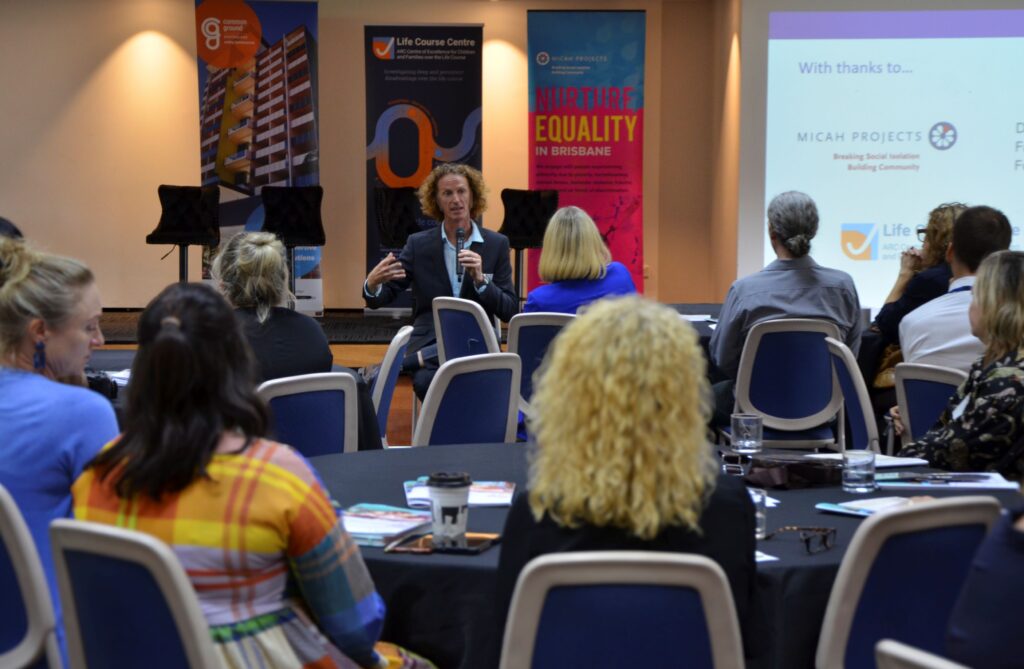


Participants in a supportive housing program for at-risk families feel safer and more secure than they did before entering it, according to the findings of a Life Course Centre report which was presented at a special event held in Brisbane in October.
The study, by a team of Centre researchers at The University of Queensland, investigated the long-term impact of the Keeping Families Together program.
“As the first supportive housing for families model to be established in Queensland, the Keeping Families Together program holds important lessons,” Dr Ella Kuskoff said.
“Among the key findings, our study report found 94 per cent of participants felt safer and more secure in their housing, participation in early education increased from 39 per cent to 88 percent, and the percentage of families seeking employment doubled.”
The Keeping Families Together program, delivered by Micah Projects and Common Ground Queensland, has been running since 2020.
It provides secure housing and multidisciplinary support for up to 20 extremely low-income families in the Brisbane area to exit homelessness, and access and sustain affordable housing in the private rental market.
The research team initially investigated the short-term outcomes from the initial 12-month pilot project, before revisiting participants to look at the effect of the program after three years.
“We found that through the provision of access to affordable housing and integrated support, Keeping Families Together program had positive impacts on participating families’ housing outcomes,” Dr Kuskoff said.
“However, the program also encountered challenges – many of which stemmed from the program’s reliance on sourcing housing through the private rental market.”
The Keeping Families Together Study Report was prepared by Centre researchers Dr Ella Kuskoff, Dr Rose Stambe, Dr Nikita Sharma, Dr Stefanie Plage and Professor Cameron Parsell.
“Our report also included a number of key recommendations based off our findings,” added Professor Parsell.
“They include creating adequate supply of social and affordable housing for those transitioning out of the program, and consideration to scale up supportive housing models to other groups.”